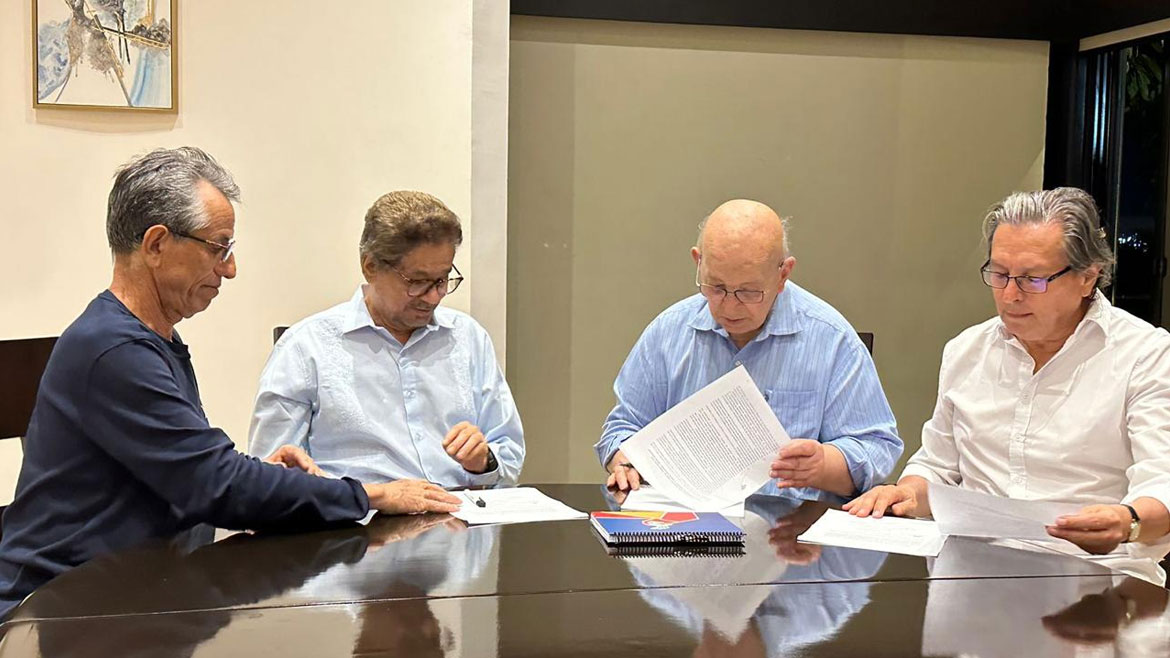Colombia’s peace commissioner and rearmed guerrilla chief “Ivan Marquez” announced new peace talks.
In a press statement, Peace Commissioner Otty Patiño and Marquez’s group, Segunda Marquetalia, said that the peace talks will kick of in the Venezuelan capital Caracas on June 24.
Patiño and the guerrilla representatives said that the talks would proceed without a bilateral ceasefire.
Colombia suspends guerrilla arrest warrants ahead of peace talks
Instead, the negotiators agreed to prioritize the de-escalation of violence and the “immediate establishment of peace territories” in regions where Segunda Marquetalia exercises control.
The government’s lead negotiator, Armando Novoa, told Radio Nacional that this implies that “Segunda Marquetalia adopts unilateral good-will measures to not engage in violent actions against the security forces and to not use arms to constrain communities.”
At the same time, the government agreed to “not advance any offensive action in the territories where [Segunda Marquetalia] is present and has influence.”
Peace talks agenda
- De-escalation of the conflict and establishment of peace territories
- Construction of peace territories
- Victims as transformative social subject
- Conditions for peaceful coexistence
- Implementation and verification
Both parties agreed that the implementation of the peace deal that allowed for the demobilization and disarmament of the FARC in 2017 is key for the success of the renewed talks.
In fact, Segunda Marquetalia said that they rearmed because of the government’s failure to comply with this peace deal and efforts to entrap demobilized FARC commanders.
Marquez and some 20 other former FARC commanders announced their rearmament in 2019 after failed attempts by the Prosecutor General’s Office and the US Government to extradite former FARC ideologue “Jesus Santrich” of fabricated drug trafficking charges.
Since then, Segunda Marquetalia successfully recruited and armed more than 1,700 members, according to military intelligence.
The dissident guerrillas are mainly active in regions that were abandoned by the FARC after this organization’s demobilization and disarmament.



